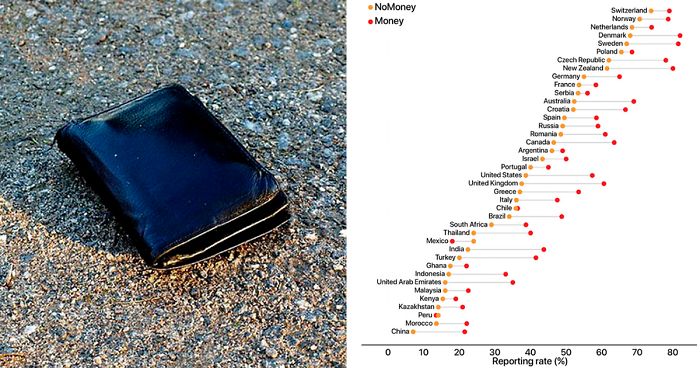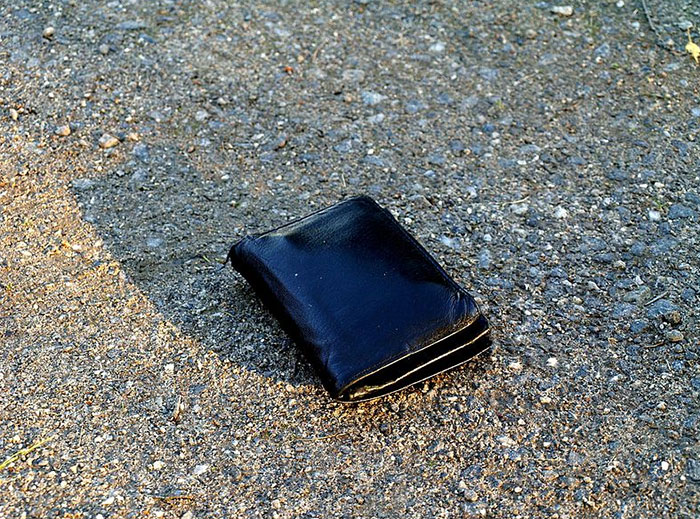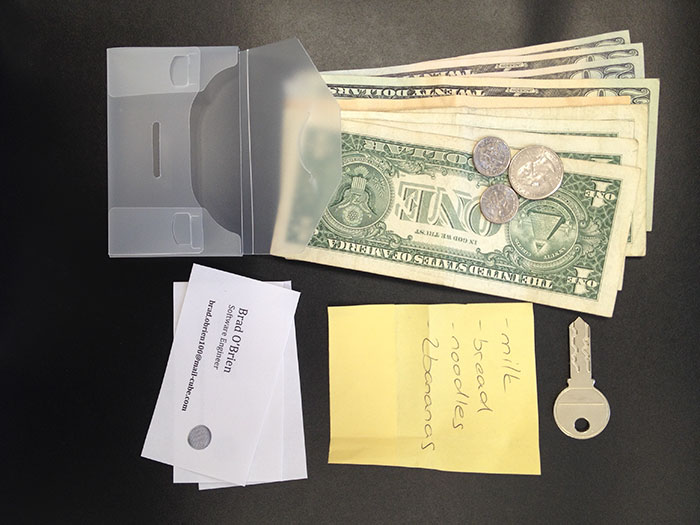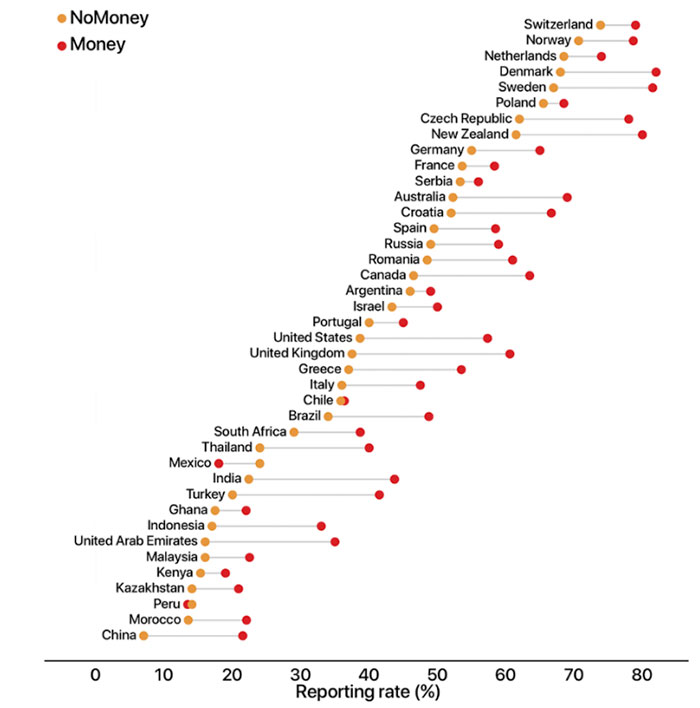
Researchers Placed 17,000 Wallets In Different Cities To See How Many People Would Return Them
How often do you catch yourself in a position where you are totally dependent on other people’s kindness? Car broke down? Lost in the city without a map? Need someone to lend you phone for a call? These are only a few examples of situations where you will not be able to get around without somebody helping you. One thing that these type of circumstances teaches you is always to be kind if you spot someone who needs your help because you can never be sure when you’ll end up wishing somebody helped you.
More info: Science
Recently, researchers at Science journal conducted an experiment that cost them around half a million dollars
The idea of this social experiment is quite simple. Eleven men and two women have traveled to 355 major cities across 40 countries where they “lost” 17,000 wallets. The main goal was to see how differently citizens in each country responded to a lost wallet. Would they return the lost and found item? Would they keep the money? What was the reasoning behind their actions?
There were two types of wallets used in the experiment, one had a key and no money inside, another one had some money and a key
These wallets contained grocery lists written in the native language, business cards with the owner’s name and email written on them, some money, and a key.
The average amount of lost money in the wallet was $13.45 (USD) in the country’s currency, and a few countries (United Kingdom, Poland, and the United States) had a larger sum of $94.15. As mentioned before, there were also wallets that had no money but had a key.
Here’s the graph portraying how different countries responded to this experiment
As shown in the graph, the yellow dot symbolizes the percentage of wallets without any in money in them that were returned, and the red dot shows the percentage of returned wallets that contained money inside them. Nordic people aced the experiment by returning the biggest amount of lost wallets. Unfortunately, countries like China, Morocco, Peru, and Kazakhstan had the smallest return-rate.
There were a few factors that affected the way people responded to the lost wallet – researchers found that wallets that had a key were returned way more often than those without the key, which mainly has to do with people thinking the key has a more significant value to the owner.
Of course, people rushed to react to this experiment
202Kviews
Share on FacebookI found a wallet on the sidewalk on a Sunday night that had over $700 in it. There was all kinds of ID, so I called the guy. He was very suspicious, he thinking I picked his pocket (then why would I call him?). Anyway he shows up at my place the next morning. He was college/grad student age, not friendly at all, nasty, want-to-be aristocrat. I gave him the wallet, he went through it, counted the money and turned around and left. Not even a thank you. But I'd still return a wallet if I found one.
I'll say thank you for him then. Don't let him stop you from being good. Others do appreciate it.
Load More Replies...I remember that I found a laptop bag as an undergraduate student, some 15 years ago. The laptop was gone but there were some documents and a business card in it. When the owner came to collect his bag, he insisted on giving money as a thank-you. I gave my banking account and he transferred €200, a huge amount for a poor undergraduate. Still wonder what those documents were all about...!
There are a number of legal documents that either cannot be replaced or you have to jump through hoops and pay an extortionate amount of money for it. I'm just a student myself, but as I study abroad I had to haul a bunch of my papers (in original) with me. To replace them via the consulate would easily cost around £1000.
Load More Replies...I found a wallet on the sidewalk on a Sunday night that had over $700 in it. There was all kinds of ID, so I called the guy. He was very suspicious, he thinking I picked his pocket (then why would I call him?). Anyway he shows up at my place the next morning. He was college/grad student age, not friendly at all, nasty, want-to-be aristocrat. I gave him the wallet, he went through it, counted the money and turned around and left. Not even a thank you. But I'd still return a wallet if I found one.
I'll say thank you for him then. Don't let him stop you from being good. Others do appreciate it.
Load More Replies...I remember that I found a laptop bag as an undergraduate student, some 15 years ago. The laptop was gone but there were some documents and a business card in it. When the owner came to collect his bag, he insisted on giving money as a thank-you. I gave my banking account and he transferred €200, a huge amount for a poor undergraduate. Still wonder what those documents were all about...!
There are a number of legal documents that either cannot be replaced or you have to jump through hoops and pay an extortionate amount of money for it. I'm just a student myself, but as I study abroad I had to haul a bunch of my papers (in original) with me. To replace them via the consulate would easily cost around £1000.
Load More Replies...













287
193